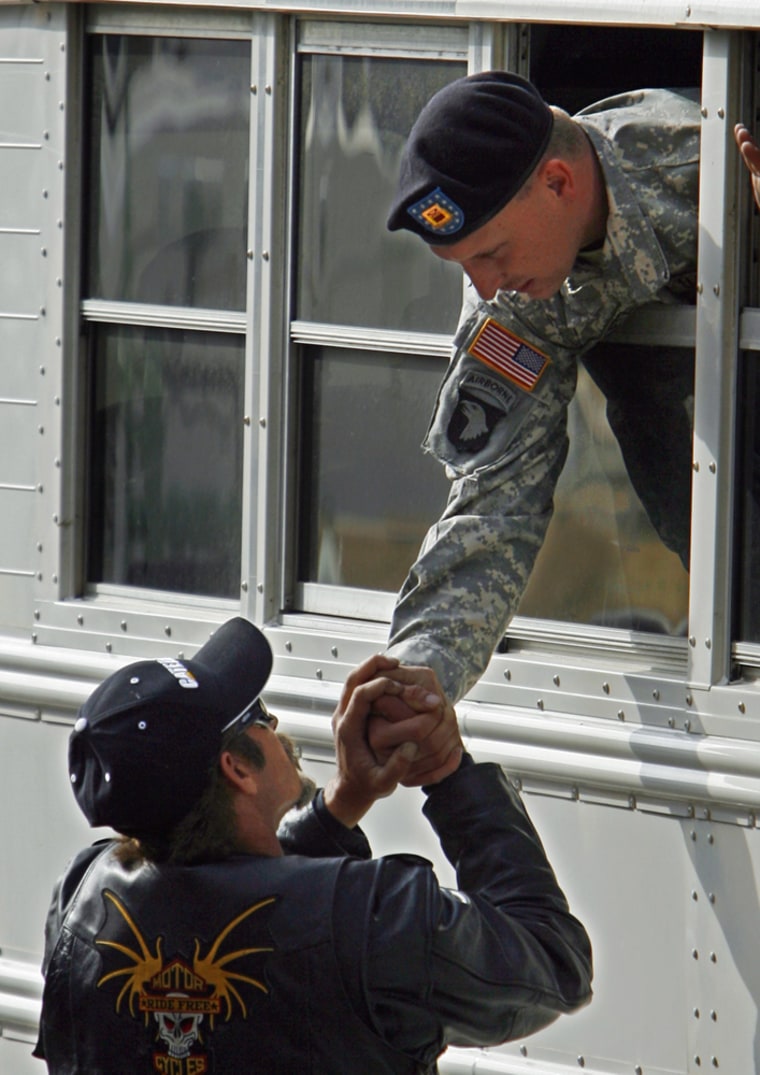A bipartisan commission has reached a consensus on new U.S. policies for Iraq and will announce its recommendations next Wednesday, the group's co-chairman said Wednesday. The commission's report comes as the Pentagon is developing plans to send four more Army battalions to Iraq early next year, including some to Baghdad, defense officials said Wednesday.
Former Rep. Lee Hamilton, a Democrat, would not reveal specifics of the panel's decisions. But its report has been much anticipated by the Bush administration and members of Congress at a time when spiraling violence in Iraq has raised questions about the viability of the Iraqi government and U.S. policy in the deeply unpopular war
"This afternoon, we reached a consensus, ... and we will announce that on Dec. 6," Hamilton told a forum on national security at the Center for American Progress, a liberal group.
Hamilton said the Iraq Study Group, which he and former Secretary of State James A. Baker III head, completed its work, and "we're making recommendations." He declined to reveal specifics, but the panel's report has been much anticipated by the Bush administration and members of Congress.
The extra reserve combat engineer battalions planned by the Pentagon would total about 3,500 troops and come from around the United States, said officials who spoke on condition of anonymity because the deployments have not been announced.
The plan comes as violence continues to rise in Iraq, and President Bush is under growing pressure to craft an exit strategy to withdraw substantial numbers of U.S. troops while shifting more responsibility to the Iraqi government. Even so, top military commanders have said they would consider increasing U.S. troops, at least temporarily, if they deemed it necessary.
"This afternoon, we reached a consensus ... and we will announce that on December 6," Hamilton told a forum on national security at the Center for American Progress, a liberal group.
Panel may call for Syria, Iran as players
The commission is widely expected to call for regional talks as part of its recommendations, including involvement by Syria and Iran. The Bush administration has been reluctant to engage those two countries, which it says have abetted the violence in Iraq.
It remained unclear what the group would recommend regarding possible U.S. troop withdrawals. As of Tuesday, its members — five Democrats and five Republicans — were divided over the appropriate U.S. troop levels in Iraq, and whether and how to pull American forces out, according to one official close to the panel's deliberations.
A second official has said that the commission is unlikely to propose a timetable for withdrawing all U.S. troops but that some members seem to favor setting a date for an initial withdrawal, an idea that has been pushed by many congressional Democrats.
There are 139,000 U.S. troops in Iraq, with some 20,000 in and around Baghdad.
Pace mum on troops
At a Pentagon press conference, Gen. Peter Pace, chairman of the Joint Chiefs of Staff, would not say whether more troops are planned for Baghdad, but he did say that was among many ideas commanders are debating. He said there was no plan to shift all troops out of the volatile Anbar Province into Baghdad.
Pace was asked if the advice of generals is becoming less important because of the upcoming Iraq Study Group report and the fact that power in Congress has shifted to Democrats, some of whom have been critical of the war.
"This is a very complex problem, and the more 10-pound brains we can bring to bear on the problem for our nation, the better," Pace said.
The Pentagon's decisions on which reserve battalions to send to Iraq next year would depend on how long the units had already served on the battlefront, because the Pentagon is trying to not break a policy of deploying troops no longer than 24 months on the ground in Iraq. The decision-making process was described by defense officials who requested anonymity because the plans have not yet been announced.
Forces on the move
In addition, military leaders are shifting brigades within Iraq. The officials said they are moving a Stryker Brigade into Baghdad to help shore up security there. The 3rd Stryker Brigade, 2nd Infantry Division will move from Mosul in northern Iraq, down to Baghdad to replace a Stryker brigade that has gone home to Alaska.
Portions of the 2nd Brigade, 1st Infantry Division are moving into Iraq and heading up to Mosul to take its place, officials said.
In another development, former CIA Director Robert Gates, President Bush's nominee for defense secretary, endorsed the idea of engaging Iran and Syria for help in stabilizing increasingly violent Iraq, an opinion somewhat at odds with Bush's.
Gates made the comments in response to a questionnaire from the Senate Armed Services Committee, which is to hold a confirmation hearing next week.
"War planning should be done with the understanding that post-major combat phase of operations can be crucial," Gates said in a 65-page written response submitted to the committee Tuesday.
